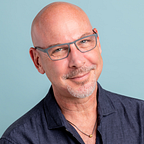As CEO, every single thing you do matters…
Thoughts on culture, leadership and power.
The Fish Stinks From The Head. I’ll never forget learning this phrase from a member of my leadership team at one of my previous companies, a former Chief Marketing Officer for numerous global luxury brands, and as smart and thoughtful an executive as anyone I’ve ever worked with. Simply put, it means that when an organization and its culture are consistently and profoundly dysfunctional, those deep issues can almost always be traced to the most senior leadership. — @ElieFinegold from his recent article on WeWork.
Here’s what I missed when I first became a CEO: The real power of a CEO isn’t in the business decisions. It’s in the examples.
I grew up thinking that the ability to make the final call, hire and fire people, decide the ultimate product features, and all the other decisions that the CEO got to make was where the real power of the CEO lives. I was wrong.
I was taught things like, “The buck stops with you.” At the end of the day, I, as the leader, get to shut things down and start them up, regardless of what others say. I am the one who decides what people get paid and who gets more money and equity. As the CEO, I would have the power to lead through these decisions.
I was taught to believe that these were the things that defined the power of the CEO.
But I realized — probably after too much time — that they weren’t.
These things were simply responsibilities. They were decisions that I had to make, and as CEO, most of the time, it was my responsibility to make them. But these things didn’t equate to leadership. Yes, there was power in the ability to make those decisions, but not the kind of power that helps people become better. Not the kind of power that helps people decide to stay late and work harder because they want to. Not the kind of power that creates exceptional teams. Many other people could and would make those decisions. The true power I had to lead and influence individuals and the entire organization was hidden somewhere else.
It wasn’t as much about the decisions I made, as much as it was about how I made them. And how I communicated them. I started to realize it was about how I did everything I did. Everything. How and when I spoke to everyone. How and when I entered and exited meetings. How and when I would acknowledge pain and suffering — whether my own, someone else’s or as a collective. How my actions encouraged, or crippled, engagement and support.
The way I acted, and the way I did the things I did, were the forces that shaped the organization. They emboldened the actions of others, or they crushed the critical personality and energy that was hidden in each employee. Whatever I did, become the default acceptability level of behavior throughout the company.
I realized that as the CEO, I was the culture.
That might be a lot to take in. There’s certainly a ton of responsibility inherent in that thought. However that’s why we do it, right?
For me, it was important to make sure I have a support system in place to help me think through and deal with that responsibility. Because it’s not always easy to see the right things hidden among the ‘important’ things.
To get better at being the CEO I wanted to be, I had to force myself to become much more observational and open to nuance than I was used to being in the past. Listening to understand as opposed to fixing became critical. Watching how people engaged vs holding their opinions to themselves in one on one or group settings was a key indicator for me of how I was doing in interactive environments.
The overall theme became clear. It was how I did everything I did, not necessarily the decisions I made, that shaped the organization and its future. That’s where the real power to influence, motivate and lead truly lived. And it’s where the power to become better each day was always hidden.
As the CEO, you are the culture.
Every single thing you say and do matters. All of these things either encourage or discourage the actions of others and the power they can bring to your organization, your customers and everyone else. How you speak. How you interact. How you walk.
And if you walk properly, you can move the Earth.
This post is part of the “Bad Ass CEO” series. I work with CEOs struggling with the immense and often overwhelming decisions inherent in running and growing a business.To hear more as they are published, or contact me about speaking, follow me here, on Twitter (@Dgmandell), or reach out directly at VentureVoodoo Partners.
